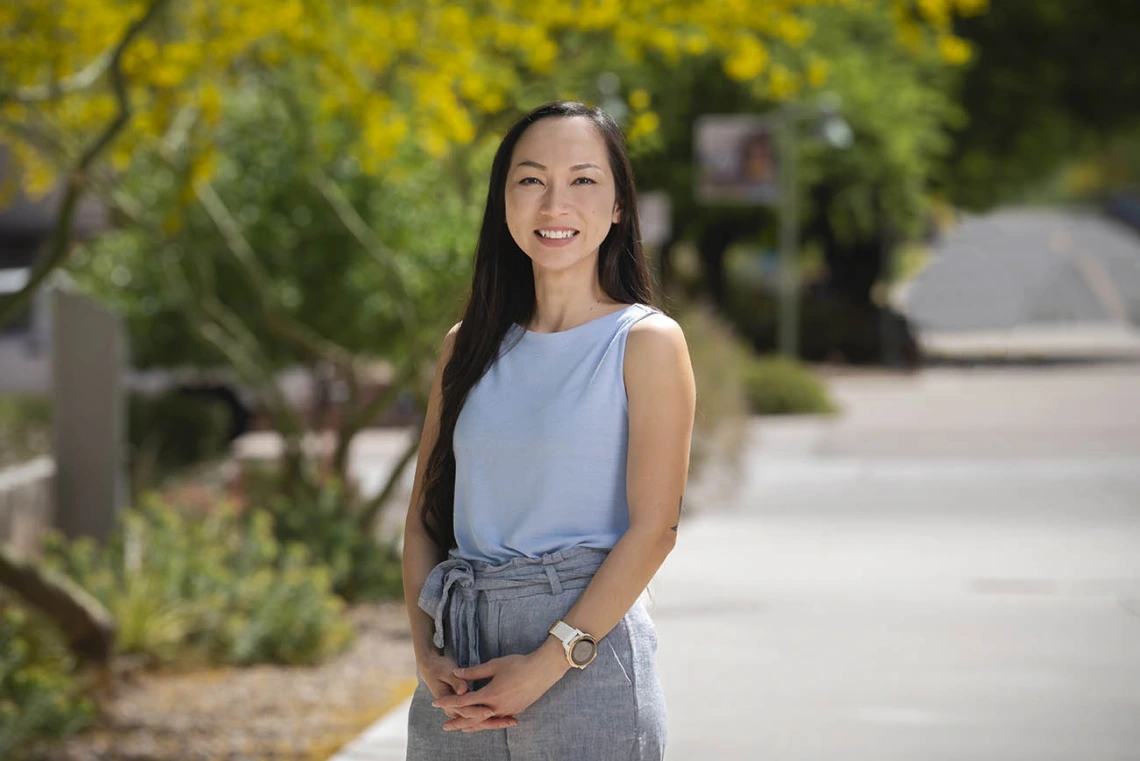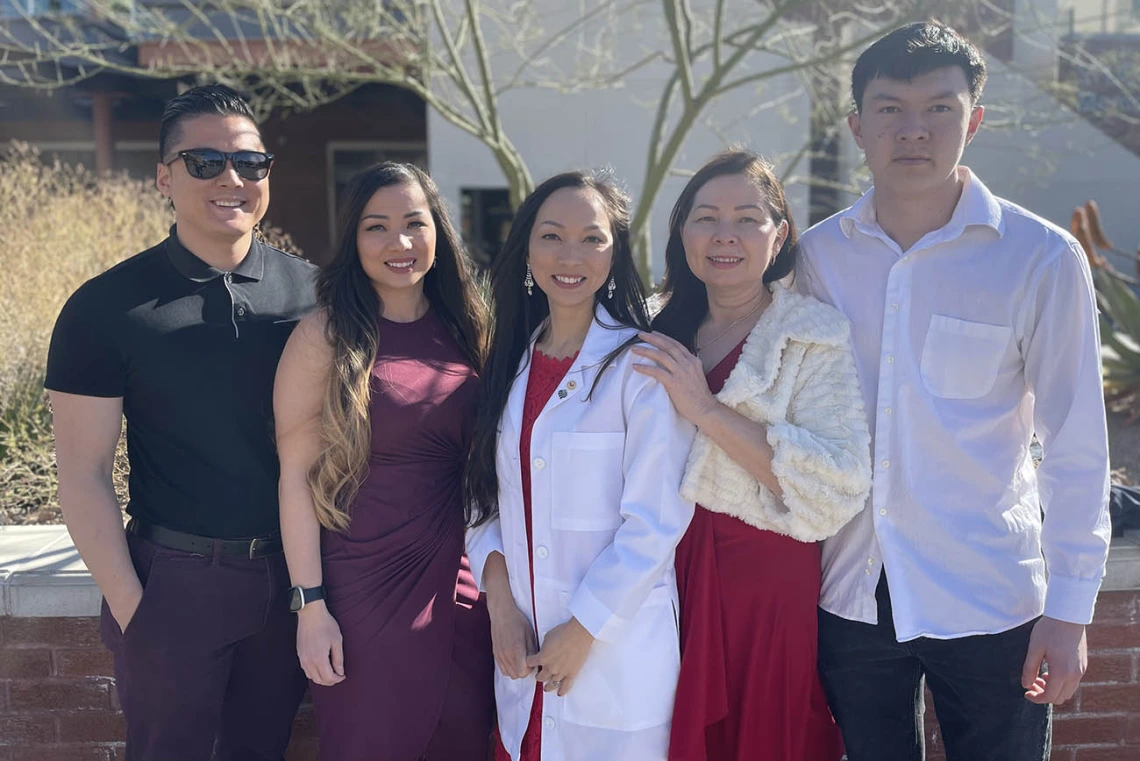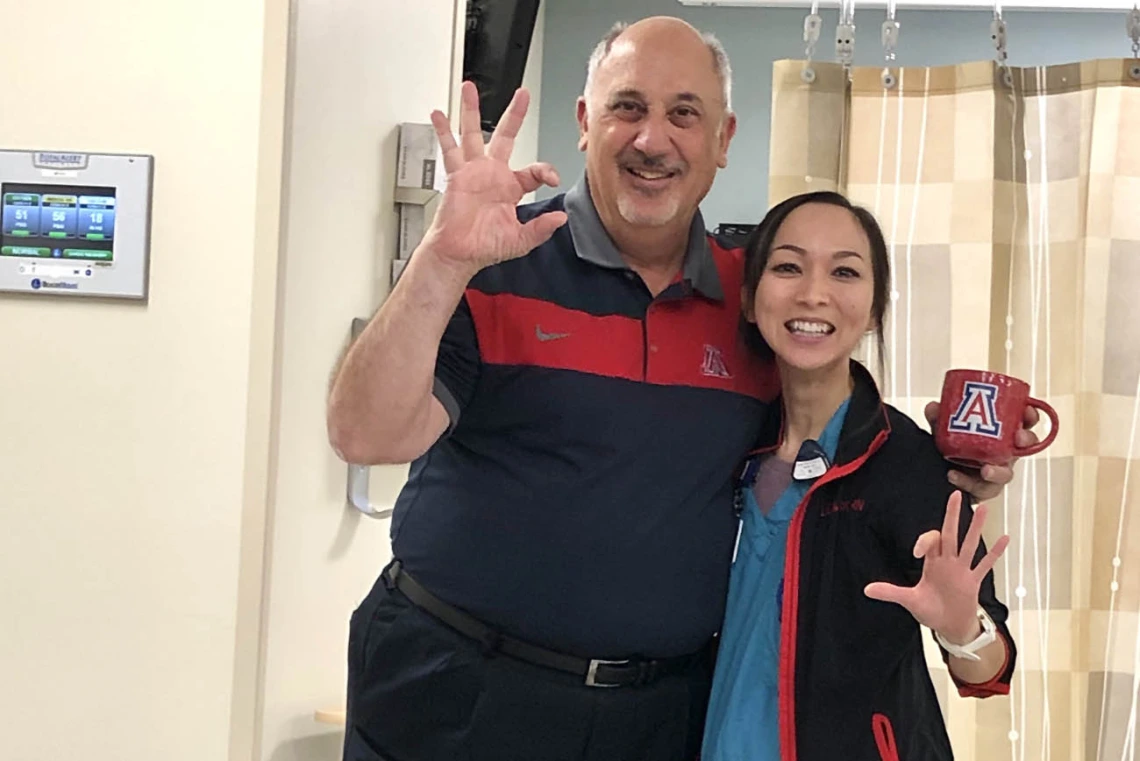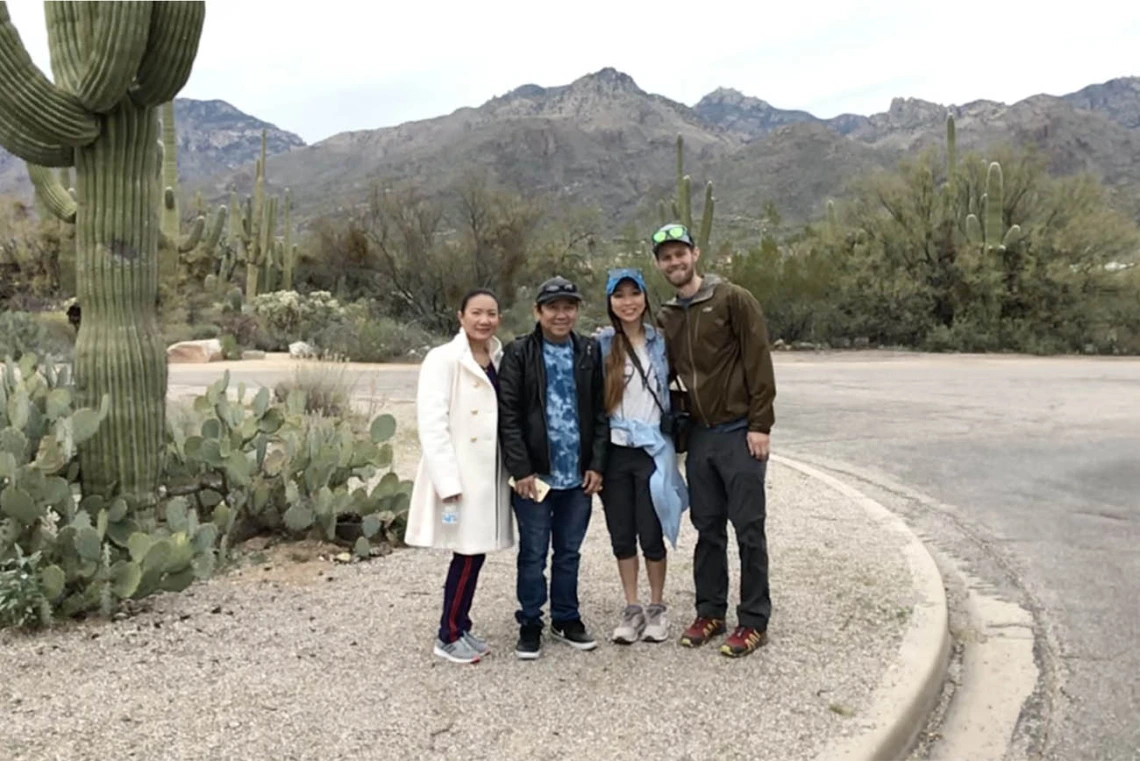Meet a Medical Student Hoping to Improve Mental Health Services
Lily Nguyen, BSN, RN, is a third-year medical student in the University of Arizona College of Medicine – Tucson whose personal and professional experience ignited a passion to improve mental health services for Asian-American communities.

I am curious about exploring mental health and mental wellness in Asian populations, especially Vietnamese-American, and particularly on the topic of addiction. My childhood and professional experiences as a nurse sparked my interest in addiction medicine with a focus on increasing the accessibility of rehabilitation programs.
From Vietnam to Tucson, Arizona
In 1992, my family immigrated to America from Vietnam when I was just 1 year old. My mother raised me and my sister in a cramped one-bedroom apartment in a small Vietnamese refugee community in Tucson, Arizona.
Throughout grade school, I eagerly watched as families slowly made their way out of the apartment complex as if it were a graduation to the next social rung. After a decade of factory work, often managing three jobs, my mother saved enough money for our little family to graduate, too.
Her dedication and perseverance inspired me to become the first in my family to graduate from college.

Lily Nguyen, BSN, RN, (center) with (left to right) her sister’s partner, Tim, sister, Cindy, mother, Be, and brother, Danny.
Family Experience with Addiction
Growing up, I saw substance abuse tear apart my family and terrorize my father’s life. Partly induced by the pressures of the Vietnam War, my father became a chain smoker and was addicted to alcohol by his early teens. His substance use compounded by underlying health issues led to renal failure, and he was placed on dialysis for four years.
I was in high school at the time, and I spent many days bedside with him, helping to translate medical information. During that time, he finally quit smoking cigarettes and his drinking lessened.
Four years ago, I received a call that he was receiving a kidney transplant. While ecstatic for him, I also felt a pang of guilt. I was morally distraught that an older alcoholic may have received a kidney instead of a young college student. In these last four years since the transplant, he has become healthier. He drinks little and only raises his voice when he laughs too hard.
Cultural Needs for Rehabilitation Programs
My own childhood experiences with addiction informed my adult experiences. I also spent five years as a registered nurse before entering medical school. I worked to the capacity of my nursing license and pursued medicine to have a bigger impact on decision making and managing care for patients.

Lily Nguyen, BSN, RN poses with Frank Morello, MD, on the day she found out she was accepted into medical school.
I saw the devastation young people endured when they became endlessly addicted after being prescribed opioids for a surgical procedure. I saw their desperation for freedom from drugs and a health care system that too often did not take them seriously. I remember receiving multiple handoff reports from fellow nurses who warned me about patients who asked for more pain medications.
These experiences sparked my interest in addiction medicine. At a summer internship program with the Betty Ford Foundation in 2021, I learned about treatment options for those with substance use disorder. The Betty Ford program is holistic and utilizes a lot of group support to help people find it within themselves to quit using drugs. Patients can benefit from individual therapy sessions, reflections, journaling, group sessions and psychiatry services.
Next Steps Focused on Culturally Sensitive Care
What I noticed during my internship is that rehabilitation is a great option, but it would not have been a feasible option for my father, whose primary language is Vietnamese. My hope is to change this in the future and expand rehabilitation programs for non-English speakers.
Rehabilitation is unheard of in my culture, as it incorporates a lot of discussions about past trauma, emotional drives toward addictions and dialogue about feelings. My culture can be stoic, and getting someone to acknowledge these things can be challenging.

Lily Nguyen, BSN, RN, is happy that her father (second from left) is healthy again
A first step would be to create a program that addresses the first barrier – language. People need to understand the language before they can dive into the deeper emotional layers of addiction. After language barriers are addressed, then culturally sensitive approaches like incorporating Buddhism, seeking forgiveness from ancestors and within families, and Asian-homeopathy should be considered. These are a few ways to bridge the rehabilitation cultural gap.
I can't say that my father would have chosen rehab on his own, but I would have liked to have known that the opportunity was available to him.
I recently got in touch with a psychiatrist at the university and hope to pursue projects that delve deeper into this topic. Since I am a budding third-year student, I am keeping my mind open as to what specialty to pursue in the future. Currently, I am curious about psychiatry and hope to explore culturally sensitive approaches to addiction care, especially in the Asian-American population.
About the Author
Lily Nguyen, BSN, RN is a former nurse and medical student at the University of Arizona College of Medicine – Tucson passionate about mental health and mental wellness in Asian populations.

